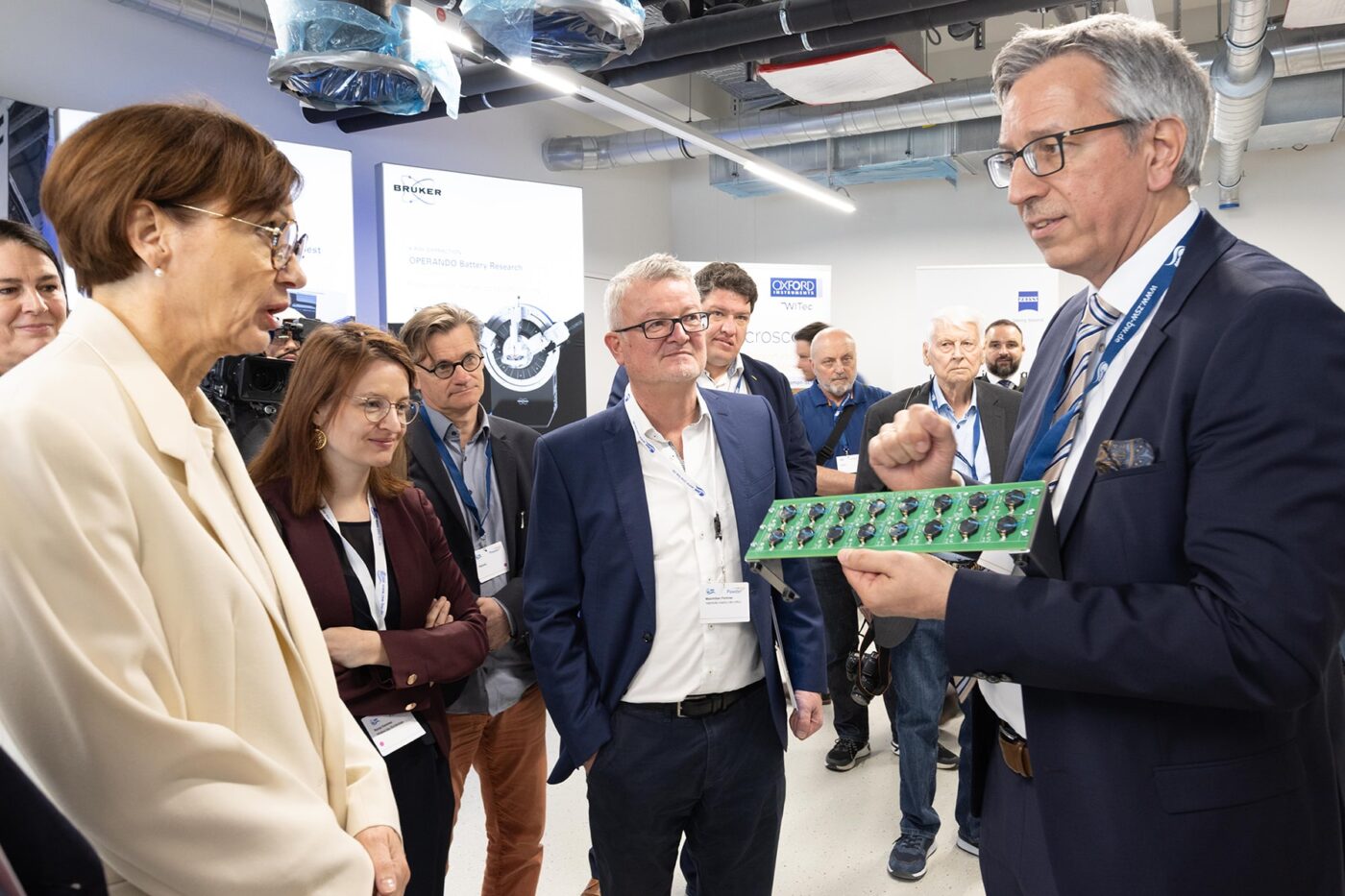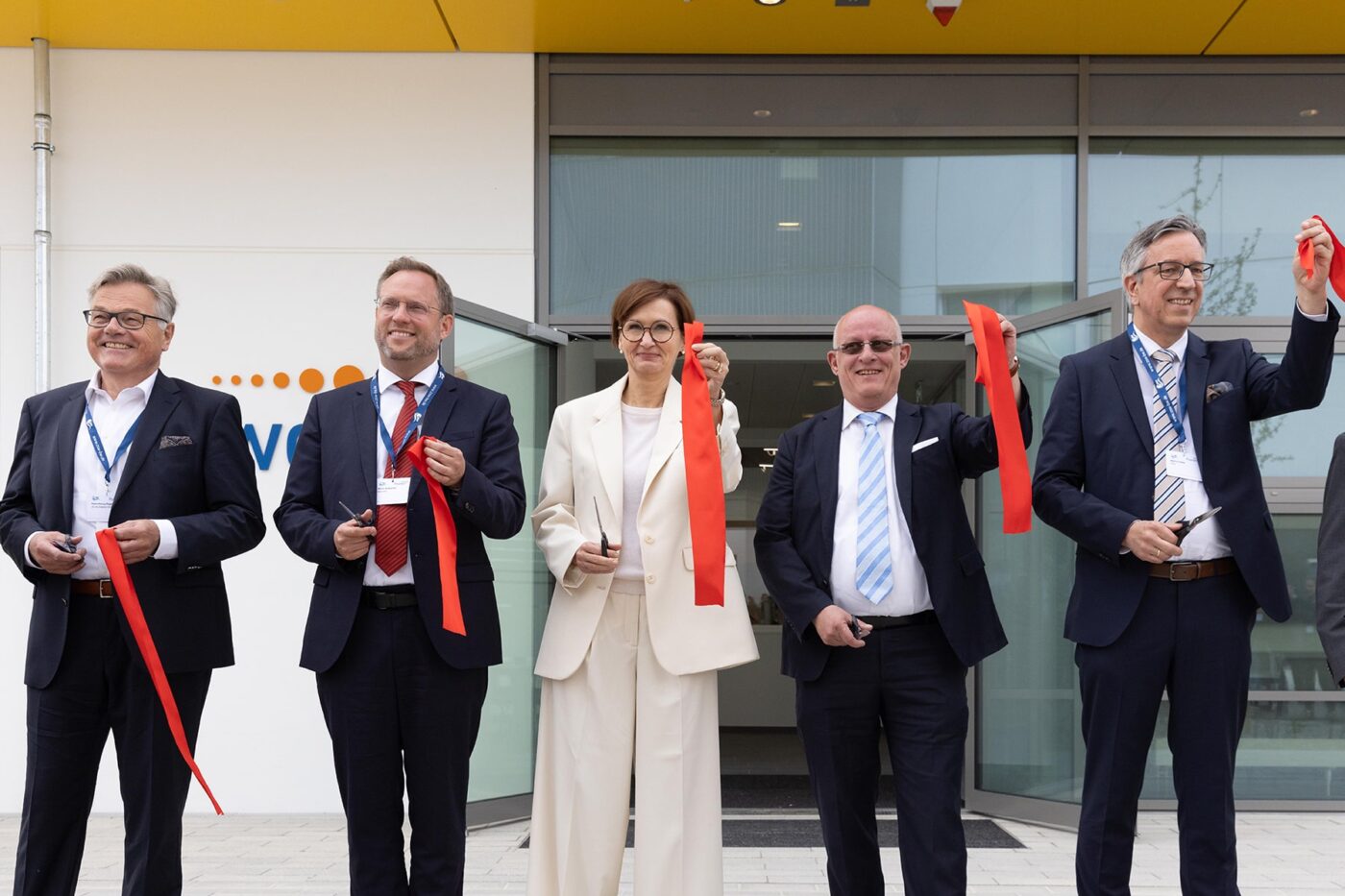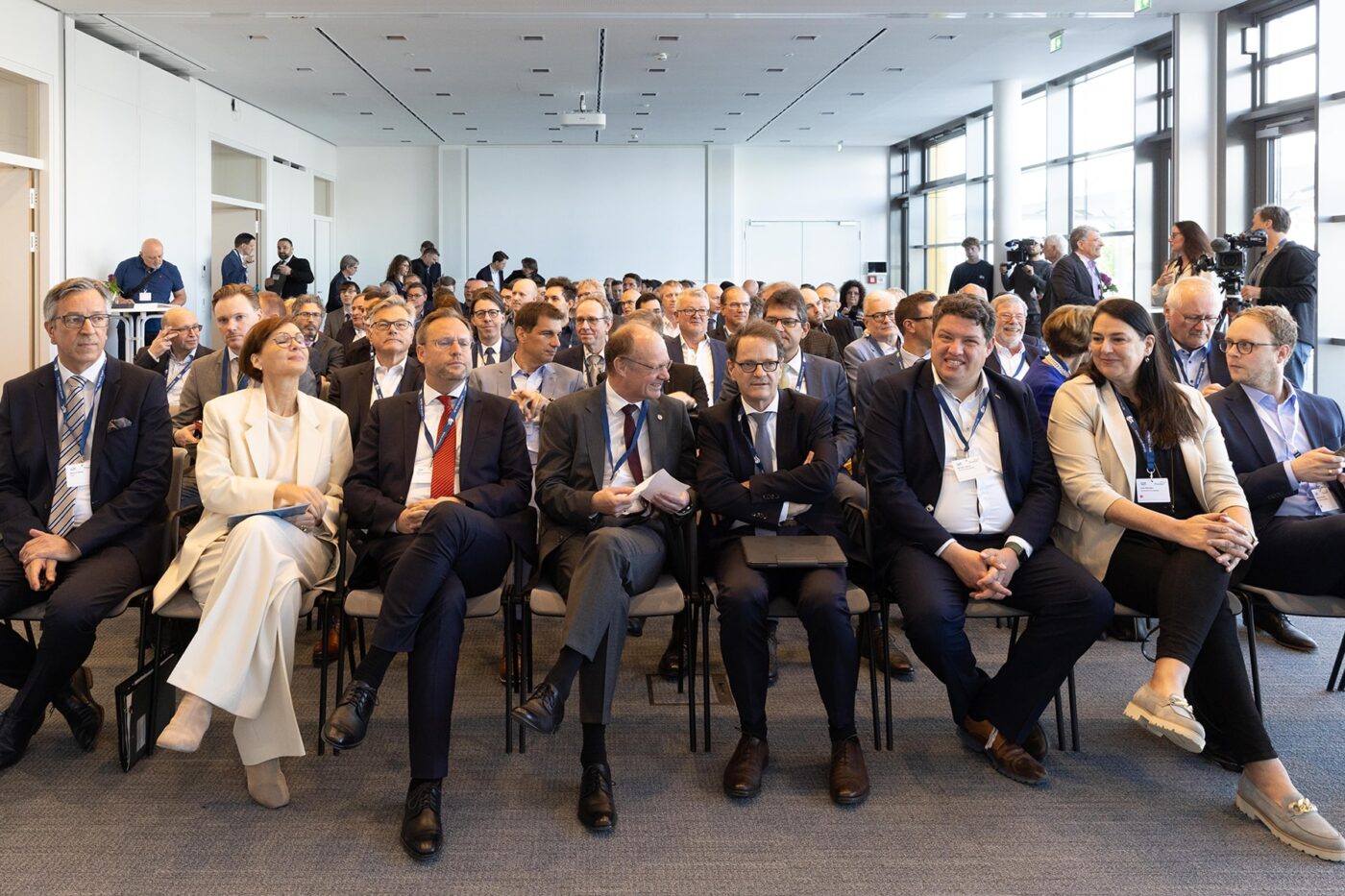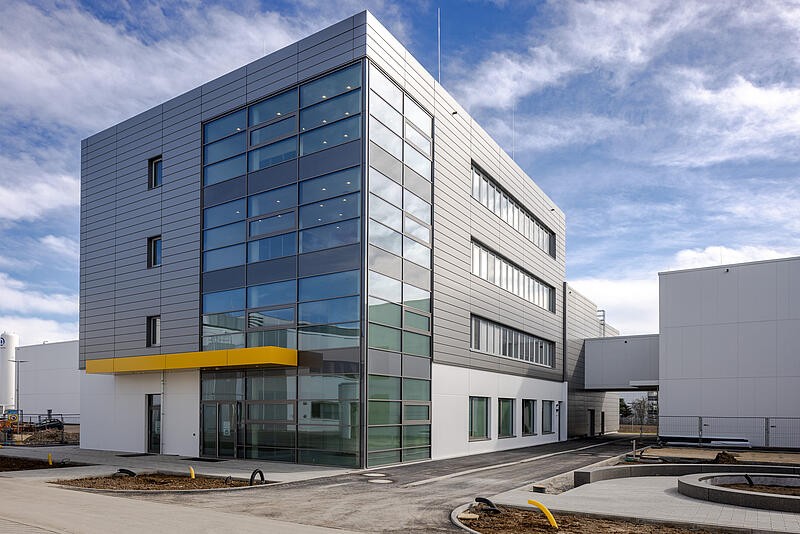ZSW supplies cathode material for tests
According to the Ulm-based ZSW, the plant will allow the production of such a quantity of battery material in Germany “for the first time outside of industry”. Construction of the plant began in December 2022, with the current inauguration of the new four-storey building taking place a year and a half later. The ZSW wants to offer the manufacturer-independent development platform available there to partners from industry and science. Only “industry-proven machines are available there in order to guarantee successful product manufacturing under near-series conditions”, as it says. The focus will primarily be on innovative cathode materials
The pilot plant has a usable area of 2,400 square metres and, according to the ZSW, covers all production steps to manufacture high-energy battery materials. This includes a precipitation plant for precursors, high-temperature heat treatment and various post-processing options. New chemical laboratories and high-precision analytical measuring equipment are also integrated. The aim is to use the system to quickly produce and test different product samples, thereby shortening development cycles.



This is because it has so far been possible to test new materials in small battery prototypes in Germany. “However, if the results are successful, significantly larger quantities of material will quickly become necessary. Until now, these could only be supplied by the large industrial manufacturers, but most of them do not produce in Europe and are rarely prepared to hand over their best products to universities or other research institutions,” says the ZSW, outlining the initial situation.
In contrast, the materials produced in “Powder-Up!” will in future be sent to pilot plants at research institutes or battery manufacturers, with batches of up to 100 kilograms being possible. “Only this amount of material enables the construction of full-size batteries, such as those that would later be used in vehicles, for example. Powder-Up also serves to research individual production steps and the machines used for this. Through this work, Powder-Up also supports the German mechanical engineering industry, from which almost all of the machines and systems originate,” says the ZSW.
The construction of the pilot plant was funded with 24 million euros from the Federal Ministry of Education and Research (BMBF). The Baden-Württemberg State Ministry of Economic Affairs, Labour and Tourism subsidised the Powder-Up building with 10 million euros.
German Federal Research Minister Bettina Stark-Watzinger was among those who attended the inauguration. She described the new facility as a key building block for the development of a competitive and sustainable battery value chain in Germany and Europe. “German battery research is excellent, now we need to improve the transfer to application and create new, innovative infrastructures for this. With the Powder-Up! pilot plant at the ZSW in Ulm and the battery cell research production facility in Münster, a coherent research ecosystem for the development of innovative battery technologies ‘Made in Europe’ is being created in Germany. This research infrastructure strengthens Germany’s position as a leading location for battery production. Now it is up to the industry to utilise this offer for a rapid market ramp-up.”
Prof. Dr Markus Hölzle, Head of the ZSW in Ulm, emphasised that the performance of lithium-ion batteries mainly depends on the materials used. “With the Powder-Up! pilot plant, such cathode materials can now be produced for the first time outside of industry in a near-series environment.”
The ZSW in Ulm has also been equipped with a large pilot line for the industrial production of lithium-ion cells up to 80 ampere-hours since 2014 and a battery safety and test centre since 1998. The centre’s areas of expertise also include researching and implementing recycling processes for production waste and metals from used lithium-ion batteries. Around 300 experts and around 100 scientific and student assistants work at the ZSW sites in Stuttgart and Ulm. One of the main areas of research is the design of innovative battery cells without the use of critical and environmentally harmful raw and auxiliary materials.
zsw-bw.de (in German)





0 Comments